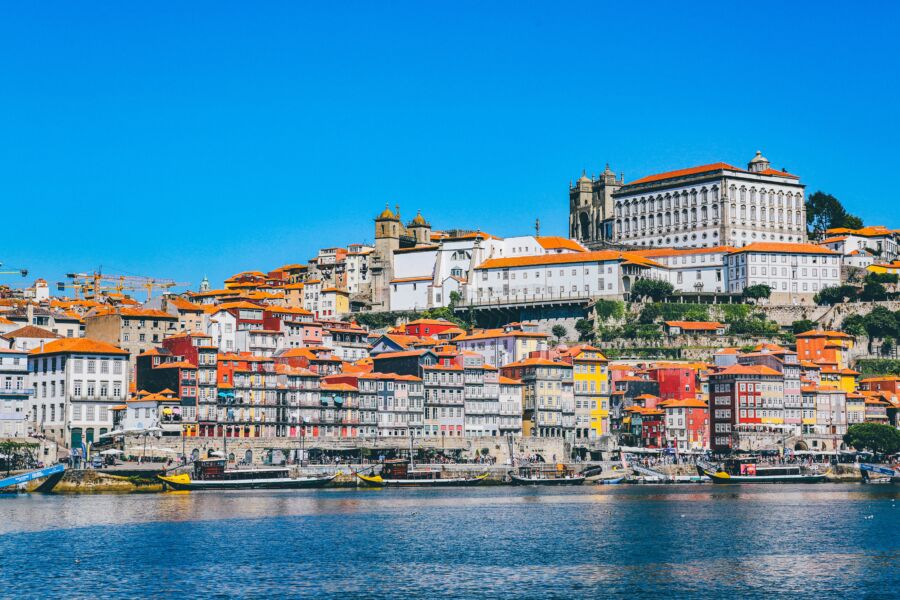Now, thanks to recent political upheavals, may well be a ‘winter of discontent’ here in Portugal. A gauntlet has been run by the would-be migrant in recent times.
The Golden Visa was the first tarnishing blow to this post-pandemic promised land. Other visas’ terms and conditions have steadily stiffened. Property prices and demand thereof have seen a progressive and dizzying upward spiral and, all of a sudden, the government announces the scrapping of the NHR tax incentive (at the end of 2024) – the last straw for some …
In a year or so, it would seem, Portugal’s global appeal has diminished, as those who once were keen to dip their toes appear to be getting cold feet. But is this a fair reaction? And does Portugal deserve relegation from the premier league of dream destinations for digital nomads and sun-seeking retirees?
The weather isn’t helping me to make a great case at the moment as our legendary 300 days of annual sunshine seem a far cry in these damper, duller and darker-sooner months. The Portuguese here with me in this Silver Coast café, where I’m penning my thoughts, are sporting ever more layers and have mislaid the care-free, festa-fuelled demeanour I know and love.
Now it’s down to coffee, alcohol and hearty food to see us through our unofficial Portuguese winter pseudo-hibernation, made bearable only by the gusto with which the Portuguese celebrate Christmas. Now, we gird our national loins for the coldest and hardest months, looking only ahead to those bone-warming first days of spring that we hope will show themselves, if only momentarily, in late February.
So, what can I tell you if your confidence in Portugal has been knocked? How can I help if you’ve only recently arrived and are wondering if you’ve made a grave error in this land of capricious politics, a winter for which we are perennially ill-prepared, and an increasingly less attractive cost of living?
I have been inspiring and supporting a good many Americans with their Portugal plans for more than a couple of years and have, therefore, had a front-row seat for the emerging scenario just described.
It is fair to say things have gotten harder, which you would, of course, expect as demand grows and consequently pressurises real estate inventory, bureaucratic infrastructure and indigenous goodwill. Recent bureaucratic and budgetary changes have both chastened and hastened plans.
Not exactly a victim of its own success, but certainly a reaper of all that’s been sown in the recent migratory boom, I will stick my neck out and say that this is still a great country to move to and I will gladly tell you why, strangely enough with the help of an Italian and a Frenchman.
From my European expert duo, I call to the stand first one, Vilfredo Pareto, a man who would come to be literally principled and known the world over for his 80/20 rule.
Around the turn of the 20th century, this ‘polymath’ realised that roughly 80% of the land in Italy was owned by 20% of the population. Whether this is still true there, or even here in Portugal, is not the point. The point is that he, and others who picked up the idea and ran with it, observed that this ratio was at work in many areas of human life and in the natural world.
Put simply, and why the principle is so enduringly pleasing, is that, roughly-speaking, 20% of any effort or cause apparently produces around 80% of results or effects.
An everyday example in the business world asserts that 80% of sales come from 20% of a company’s clients or products. On the roads, 80% of accidents are thought to be created by 20% of drivers, and at work just 20% of a workforce might claim the credit for 80% of corporate results. You get the picture, I am sure.
Bringing it closer to home, and why I think Portugal is still a great choice despite the current (and I would argue illusory) perfect storm of disadvantage, I contend that all that apparently irks and displeases us is a mere 20% of the reality of daily life.
A daily life that, when compared with elsewhere – especially the countries from which we foreigners come – is deliciously civil, unassumingly safe and of much greater value, in the broadest sense of the word.
Oddly enough, challenges can look bigger from a distance, made worse by ceaseless and emotional discussion in the news and on social media. However, the bureaucratic and economic aspects of life for immigrants – though feeling like they have an 80% effect on your life are much more a 20% matter in reality, which is obvious when your daily life is convivial and contented, even if it is colder currently.
Wherever you choose to live, and choose somewhere we must, there will be admin and an amount of ‘rendering unto Caesar’. For anyone changing countries, and adjusting to a new life abroad, these chores will be by necessity unknown, amplified and awkward. But they will probably be worth it, the pain before the gain, and ultimately a dull but necessary part of living life – in Pareto terms: 20% of your chores that may well give you 80% of your stress.
Back to this century and just a couple of weeks ago, when reflecting on the eventual scrapping of the NHR, a Frenchman by the name of Romaine Palluel – himself a recent arrival to these shores and a mortgage expert at CAFIMO – described the doomed, advantageous tax regime as the ‘icing on the cake’. And in true stereotypical French philosophical style pondering its demise, he wisely pointed out that “if you don’t get the icing, you’ll still end up with the cake”.
He is, of course, spot on, and I would urge you to consider this thoroughly appropriate perspective-bringing analogy, in the land of bountiful bakeries, if your passion for Portugal has waned in any way. Generally and relatively speaking, life is good, very good here and nowhere is, of course, perfect.
For me, this land and lifestyle are Pareto personified. We don’t have to do a great deal, after the initial upheaval of moving here, to enjoy an enviable quality of life. And if Portugal is 80% pleasure and just 20% stress, that is not a bad hit rate in these generally turbulent and uncertain times.
Where once our ancestors faced daily and visceral existential threats, our greatest fears and challenges in the modern, privileged world have become pieces of paper and spreadsheets. So, isn’t the occasional blast of bureaucracy and a little bit more tax a small price to pay for this great way of life and a soul-nourishing culture? And isn’t it good to know that only 20% of us are required to keep it that way?
Carl Munson is host of the Good Morning Portugal! show every weekday on YouTube and creator of www.learnaboutportugal.com, where you can learn something new about Portugal every day!





















